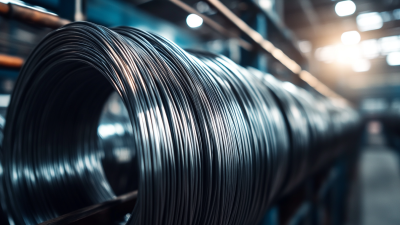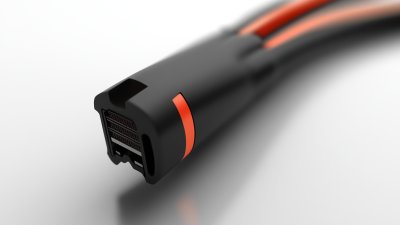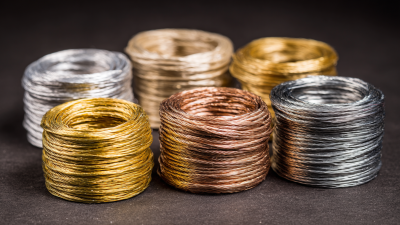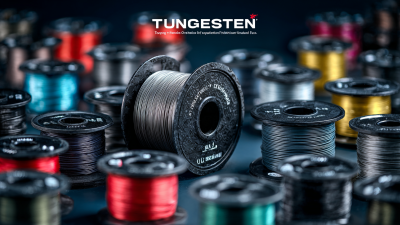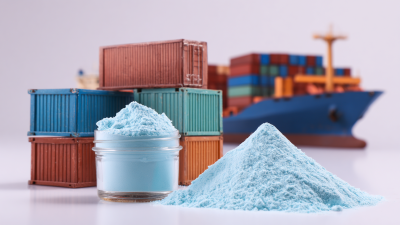In the ever-evolving landscape of modern manufacturing, the adoption of advanced materials has become paramount in enhancing both efficiency and product quality. One such essential material is Alloy Wire, which has garnered significant attention for its exceptional properties and versatility across various applications. According to a report by MarketsandMarkets, the global wire and cable market is projected to reach $350 billion by 2026, with alloy wires playing a crucial role in driving innovation and performance improvements. These wires offer unmatched benefits such as superior strength, increased resistance to corrosion, and excellent conductivity, making them ideal for industries ranging from aerospace to electronics. As manufacturers seek to optimize their processes and products, understanding and leveraging the advantages of Alloy Wire will be key to staying competitive in today’s demanding market.
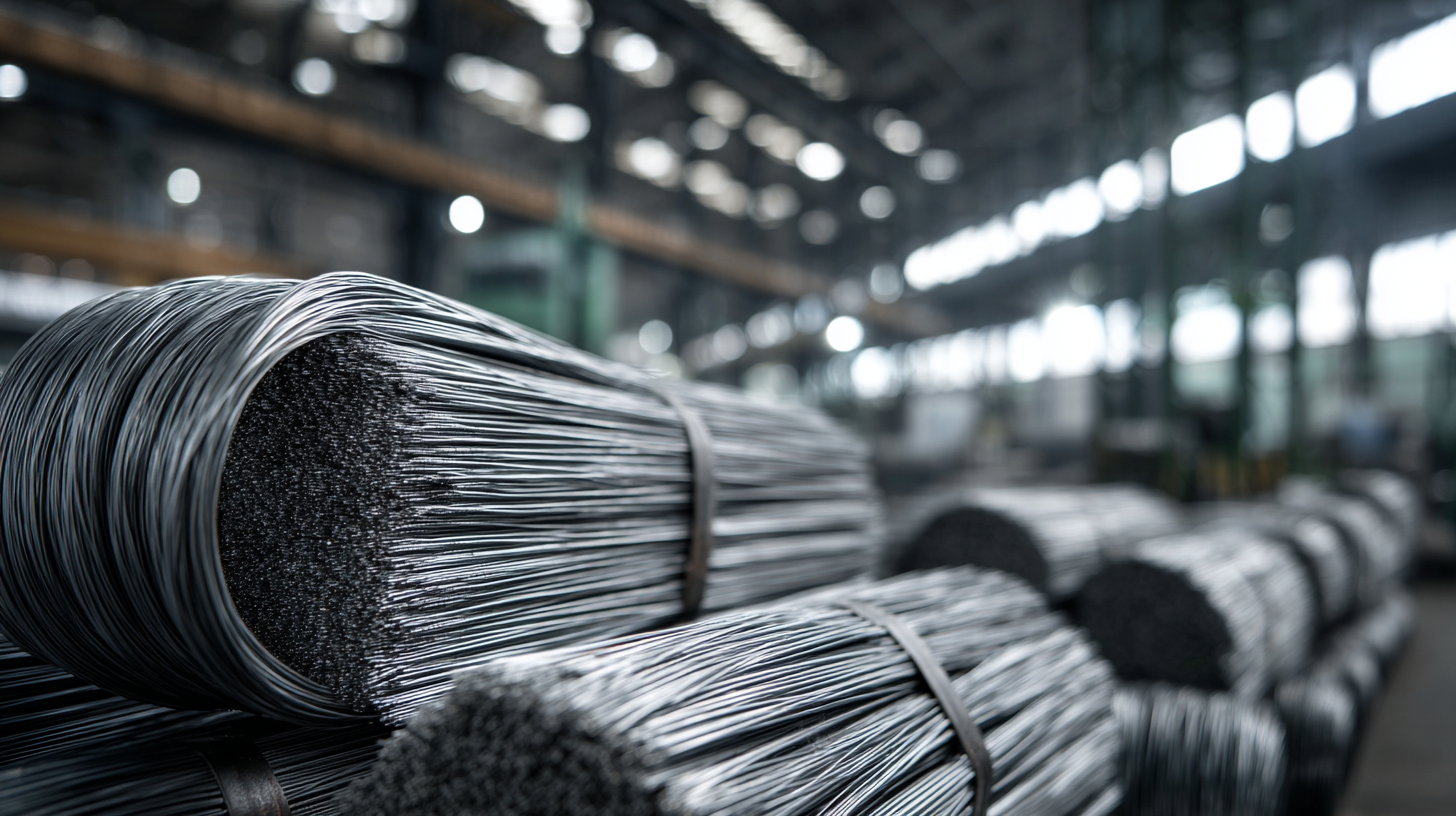
Alloy wire has become a pivotal element in modern manufacturing due to its superior strength and durability properties. One of the primary advantages of alloy wire is its ability to withstand extreme conditions, such as high temperatures and corrosive environments. This resilience makes it an ideal choice for various applications across industries, from automotive to aerospace. Manufacturers can rely on alloy wire to maintain structural integrity under stress, ensuring that their products meet safety standards and last longer.
Another essential benefit of alloy wire is its versatility. With various alloy compositions available, manufacturers can select a type that best suits their specific needs, whether seeking lightweight materials or those that can handle heavy loads. This adaptability not only enhances the performance of final products but also contributes to efficient production processes. By incorporating alloy wire, manufacturers can reduce maintenance costs and improve the overall lifespan of their equipment and structures, leading to increased productivity and a better return on investment.
Alloy wire has revolutionized design flexibility in modern manufacturing, offering unprecedented customization opportunities. The ability to tailor alloy compositions is critical for various applications, from aerospace to wearable technology. For instance, in wire arc additive manufacturing, metal-cored wires can be optimized through modified processes, allowing manufacturers to fine-tune microstructures and mechanical properties. By adjusting parameters such as heat input and management, they can mitigate defects and enhance the overall quality and performance of components, particularly for complex and demanding environments.
Furthermore, the utilization of shape memory alloys in design has transformed the capabilities of products like prosthetics and soft robotics. These materials can return to a predetermined shape upon heating, enabling innovative actuation mechanisms. This technology supports the development of flexible robotic systems and customizable prosthetic devices that adapt to user needs. The integration of alloy wires into these designs guarantees not only functional performance but also the versatility required for various applications, ranging from military equipment to advanced sensing electronics used in aviation. This level of customization and adaptability is crucial in meeting the evolving demands of modern manufacturing.
Cost efficiency is a critical factor in modern manufacturing, particularly as industries face increasing pressure to minimize waste and optimize resource utilization. The aerospace materials market, estimated to reach $40.27 billion in 2023, is anticipated to grow at a compound annual growth rate of 8.82% through 2031. This growth underscores a significant shift towards cost-effective practices, where innovative materials like alloy wire play a crucial role in reducing material waste during production processes.
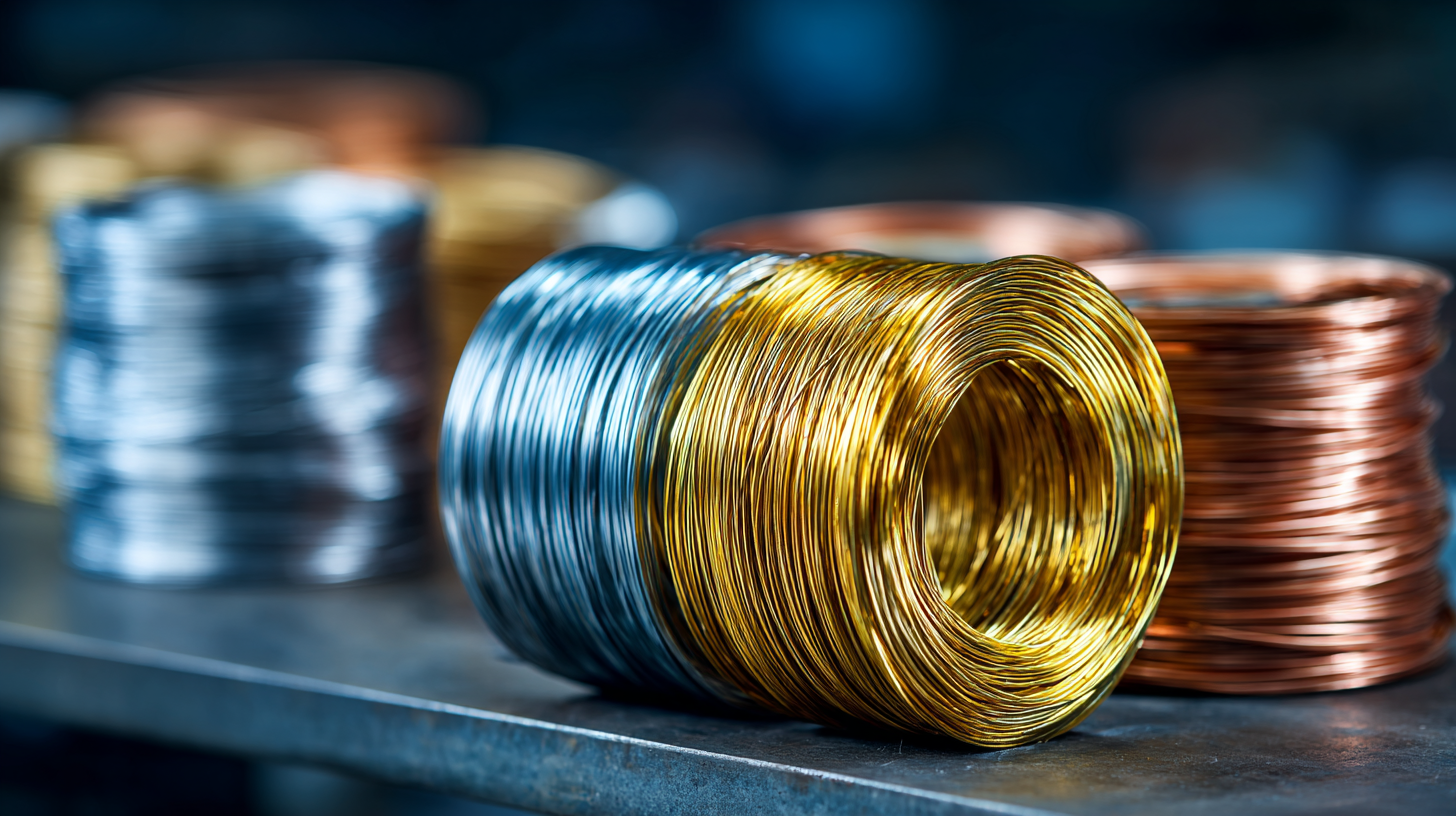 Alloy wire, known for its strength and resistance to corrosion and wear, allows manufacturers to create lightweight yet durable components, which are essential in sectors like aerospace and automotive. By implementing alloy wire in their production lines, companies can decrease the quantity of raw materials needed and lower energy consumption, further enhancing cost efficiency.
Alloy wire, known for its strength and resistance to corrosion and wear, allows manufacturers to create lightweight yet durable components, which are essential in sectors like aerospace and automotive. By implementing alloy wire in their production lines, companies can decrease the quantity of raw materials needed and lower energy consumption, further enhancing cost efficiency.
Furthermore, tools like smart manufacturing platforms can provide real-time data, enabling manufacturers to make informed decisions that streamline operations and minimize waste. As industries adopt these advanced technologies, the move towards more sustainable practices will continue to reshape the manufacturing landscape.
Alloy wire has become a critical component in modern manufacturing, particularly due to its exceptional corrosion resistance. This property not only enhances the durability of manufactured products but also significantly extends their operational lifespan. With varying applications found in harsh environments, such as chemical processing and marine industries, the use of alloy wire ensures that components can withstand exposure to corrosive elements without succumbing to degradation.
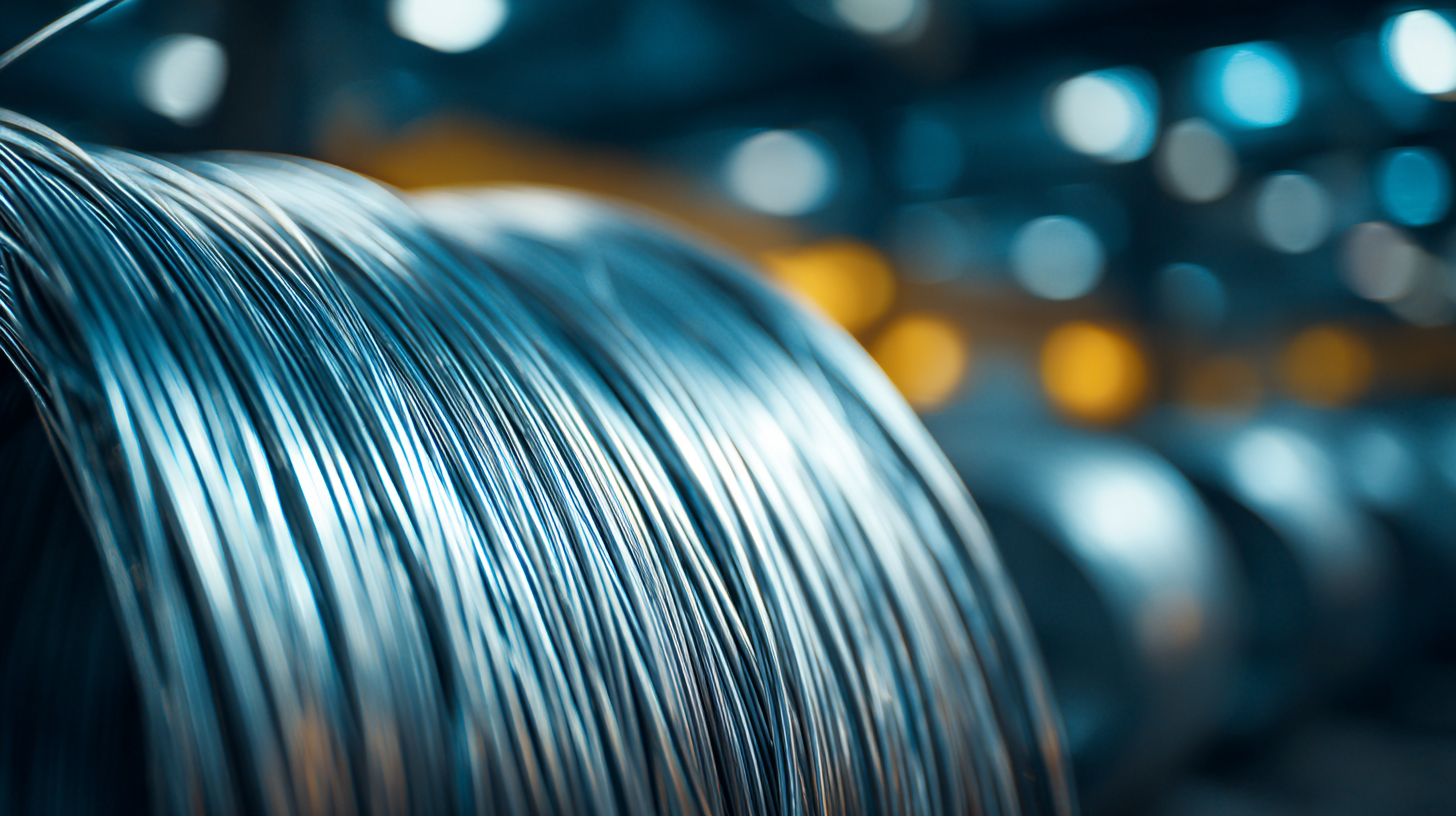
Moreover, the corrosion resistance of alloy wire allows manufacturers to reduce maintenance costs and increase the reliability of their products. For instance, machinery parts made from corrosion-resistant alloys require less frequent replacement, which translates to lower downtime and higher productivity. By investing in alloy wire, manufacturers can produce components that not only meet rigorous quality standards but also endure the test of time, ultimately benefiting both the environment and the bottom line.
The eco-friendliness of alloy wire in modern manufacturing stems from its sustainable sourcing and efficient usage. Alloy wires are often made from recyclable materials, which significantly reduces the environmental impact associated with their production. By utilizing metals that can be reclaimed and reused, manufacturers diminish the need for new raw materials, thus conserving resources and minimizing waste. This practice not only lessens the carbon footprint of production but also aligns with the growing global emphasis on sustainability.
Moreover, the versatility of alloy wire enhances its sustainability in various applications. Because of its durability and performance under extreme conditions, alloy wire often outlasts traditional materials, leading to fewer replacements and lower overall consumption over time. This longevity contributes to more efficient resource management and supports eco-friendly manufacturing practices. Additionally, advancements in alloy wire technology continue to improve its properties, making it an even more attractive choice for manufacturers committed to reducing their environmental impact while maintaining high-quality production standards.
| Benefit | Description | Environmental Impact | Sourcing Method |
|---|---|---|---|
| Durability | Alloy wire is resistant to wear and corrosion, resulting in longer-lasting products. | Reduces waste generation due to longevity. | Recycled materials and responsibly sourced raw materials. |
| Lightweight | Allows for lighter designs, improving energy efficiency. | Decreases the energy consumption of transport and installation. | Utilization of low-impact extraction techniques. |
| Versatility | Can be used in a variety of applications across industries. | Reduces the need for multiple materials, simplifying manufacturing. | Sourced from reliable suppliers practicing sustainable methods. |
| Corrosion Resistance | Suitable for harsh environments, extending product life. | Minimizes environmental contamination from material breakdown. | Emphasis on using recycled alloys and responsible sourcing. |
| Cost-Effectiveness | Less frequent replacements and maintenance reduce overall costs. | Lower waste disposal costs and reduced resource depletion. | Promotes circular economy practices in sourcing materials. |
